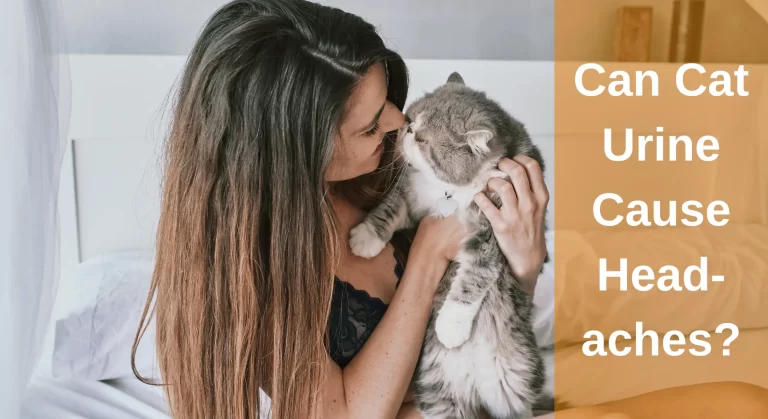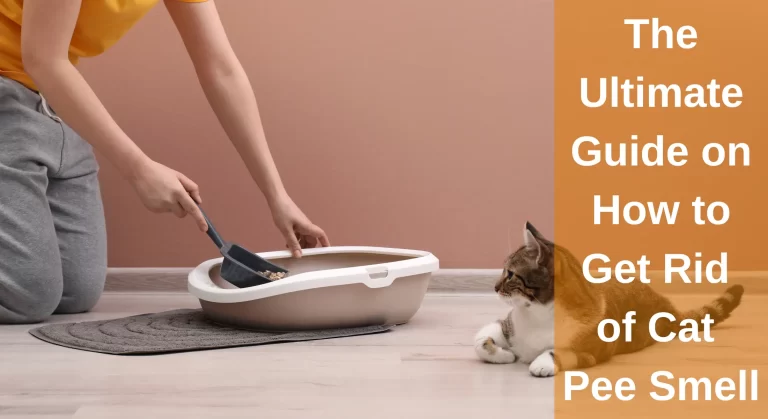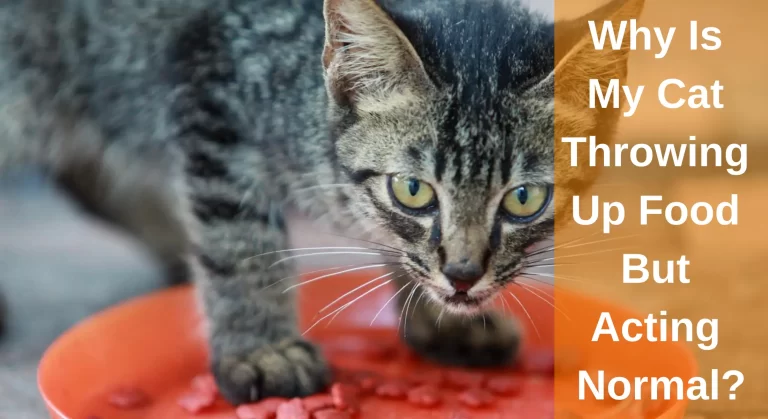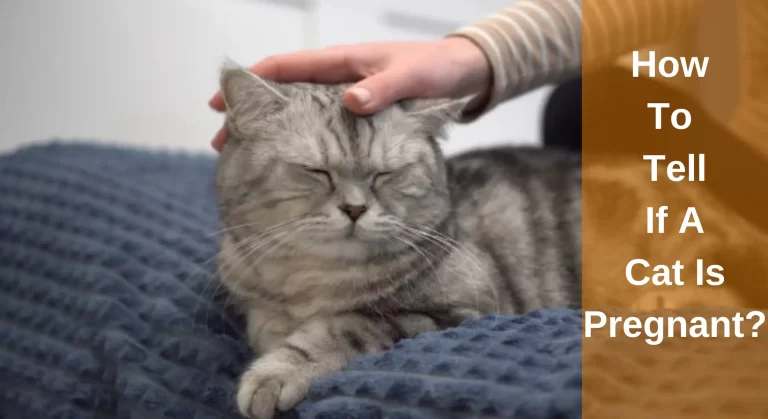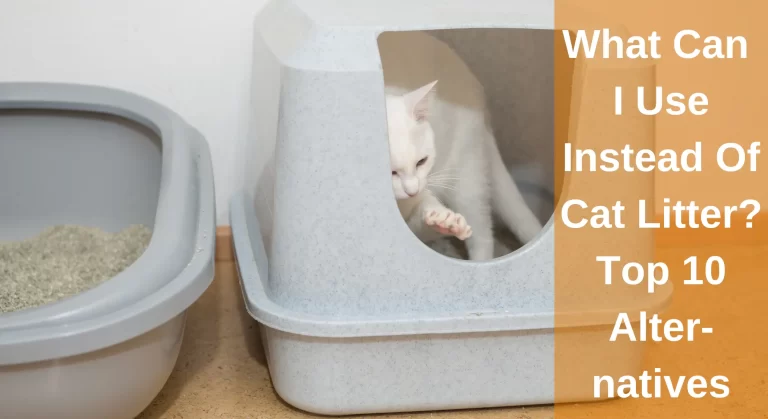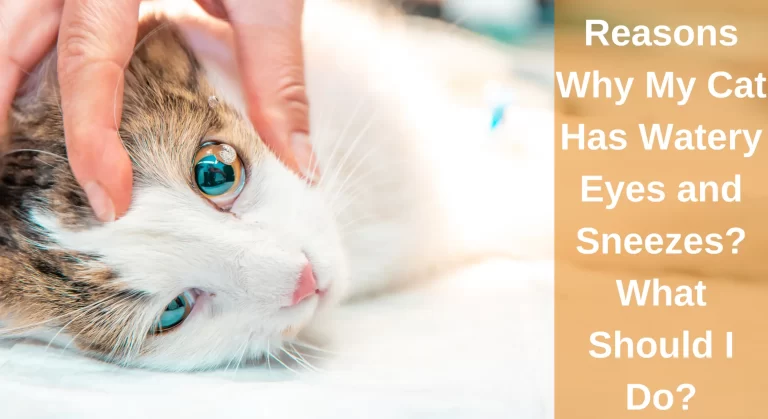Cat Has Diarrhea But Seems Fine: What Should I Do?
Most cat owners would rather not discuss diarrhoea. However, such a complex issue can have a more profound impact on cats than on people. As a result, even if there is no reason to be alarmed when you discover your cat has loose stools while cleaning the litter box, it is crucial to keep a close eye on your pet. What if Cat has diarrhea but seems fine?
If your cat has diarrhea, but otherwise appears fine, it may be responding to something it ate. Changing a diet, developing food intolerances, or being allergic to specific ingredients in a diet could also lead to diarrhoea. While your cat may seem to be in good health, gastrointestinal symptoms and pain may be caused by viral or bacterial infections.
Some of the more common causes of feline diarrhoea are infectious agents, such as viruses, bacteria, intestinal worms (roundworms, hookworms, whipworms), and non-infectious irritants, such as poisonous plants or chemical toxins.
A veterinarian should always be consulted if your kitten or cat has diarrhoea because they are especially susceptible to dehydration. Read on to discover the root of your furry friend’s sensitive problem and attempt to find a solution.
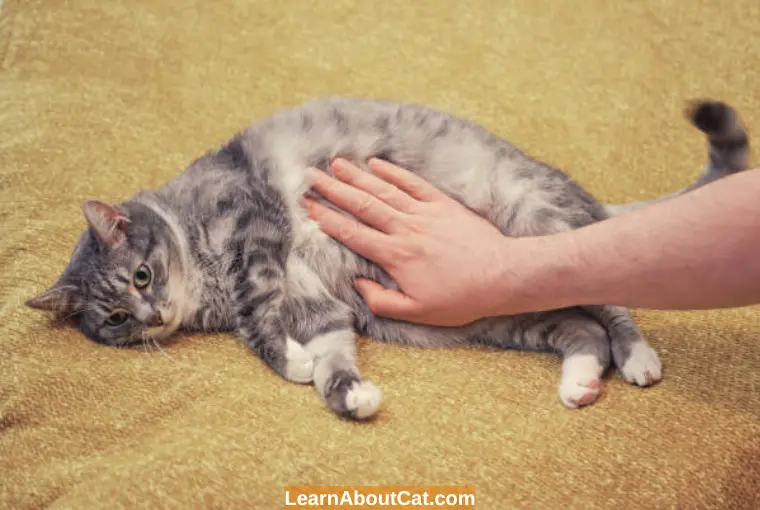
Cat Has Diarrhea And Vomiting: The Primary Causes of Diarrhoea
There are a variety of things that can cause diarrhoea in cats. While most cases improve within a few days, the more severe cases may require veterinary attention. Dehydration and other complications can occur in severe diarrhoea cases, especially when left untreated.
Most of the time, chronic diarrhoea (which lasts longer than two to three weeks) and acute diarrhoea (which starts rapidly and lasts less than two to three weeks) may have comparable causes but different treatments.
Some common causes of diarrhoea in cats:
- Having an upset stomach after eating
- A change in diet
- Worms
- Other gut parasites such as cryptosporidium, giardia and tri trichomonas
- Pancreatitis
Check Out: Why Is My Cat Throwing Up Undigested Food?
Why Does My Cat Have Diarrhea But Acts Fine? Causes Diarrhea in Cats
Various conditions might cause runny, loose, or liquidy excrement in your cat. A change in nutrition, parasites, stress or an intestinal infection is the typical offender. Kitty’s sensitive digestive tract can be affected by many more serious issues.
The three viruses that cause severe diarrhoea in cats most commonly are panleukopenia, rotavirus, and coronavirus.
More serious viral conditions such as feline immunodeficiency virus, leukaemia virus, and infectious peritonitis can also cause chronic diarrhoea.
However, in addition to these signs and symptoms, viral infections can also cause fever, loss of appetite, dehydration, vomiting, and a reduction in activity.
But remember that bacterial diseases can cause cat vomiting, watery faeces, or even bloody diarrhoea. Here are the causes of feline vomit and diarrhoea.
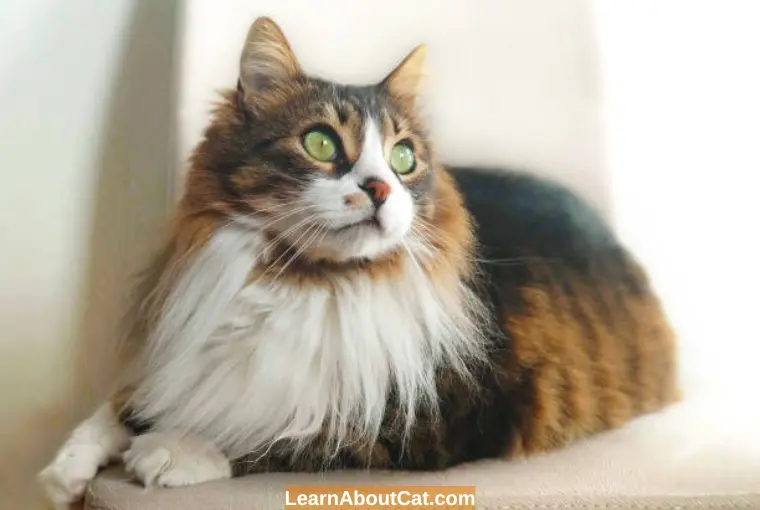
1. Diet Modifications
Cats with sensitive stomachs are especially prone to diarrhoea when their diet changes suddenly. If you try to modify your cat’s eating habits, introducing a new food too quickly might result in diarrhoea in the cat.
If your cat is used to only eating dry food, giving wet food will result in diarrhoea. Additionally, this sudden introduction of a new diet may cause cats to exhibit additional symptoms, such as vomiting and anorexia, in addition to soft stools. When switching your cat’s old food to new food, make the transition slow and gradual.
2. Dietary Indiscretion
Your cat may experience this if they ingest something it shouldn’t. While most cases are minor and usually resolve within a few days, dietary indiscretion can lead to nausea, vomiting, fatigue, lack of appetite, and other health problems such as pancreatitis.
3. Dietary Intolerance
Another cause of feline diarrhoea is food intolerance. Occasionally, cats may show signs of gastrointestinal upset due to food allergies or food intolerances (usually diarrhoea, but also vomiting).
The majority of veterinarians believe that food allergies are the root cause of irritable bowel syndrome and inflammatory bowel disease, both of which can induce liquid faeces or watery diarrhoea.
4. Food Spoilage
Some cat owners might not understand how crucial it is to give their pets only fresh, high-quality food. A homemade diet and dry food both have the potential to deteriorate and cause diarrhoea and vomiting.
5. Foreign Materials
Toxic chemicals or hairballs swallowed by your cat might impede his digestive tract and result in diarrhoea as a consequence.
Ibuprofen and zinc, by the way, are highly poisonous to cats and commonly cause them to pass watery stools.
6. Lack of Fibre
Despite its indigestibility, fibre is essential to a healthy digestive system. When a cat has a low-fibre diet, their stools are often loose, which can be resolved by adding more fibre foods to their diets or using prebiotic supplements.
7. Parasite – Worms
Cats often suffer from diarrhoea caused by parasites. Several types of intestinal worms can infect cats, including roundworms, tapeworms, and hookworms. As a result of these parasites living in a cat’s intestine and consuming its nutrients, it can suffer diarrhoea, weight loss, and a poor quality of life.
8. Inflammatory Bowel Disease
An underlying inflammatory bowel disease can lead to diarrhoea in cats, which can have long-lasting effects on their health. Suppose your cat is suffering from bowel disease. In that case, it’s important to have them examined by a vet to be sure they aren’t suffering from bacteria, viruses or inappropriate immune responses.
9. Metabolic Issues
Diarrhoea can also be brought on by metabolic problems such as liver and renal disease, diabetes, and hyperthyroidism. A trip to the vet is required in this situation.
10. Stress
Cats are habitual; any type of environmental change can be regarded as stressful for cats and may result in diarrhoea without any other symptoms.
11. Dairy Food
Cats often love dairy products, including milk, ice cream, and yoghurt, but their bodies don’t produce enough lactase to digest them. The majority of cats are lactose intolerant. A chemical called lactase is necessary for the digestion of lactose in dairy products. In the intestine, undigested lactose ferments and causes gas and diarrhoea.
So it’s possible that dairy products like milk, cheese, ice cream, or cream will make your cat sick. This true for so true for those cats who are lactose intolerant.
Home Care for Cats With Diarrhoea
If your cat is suffering from mild diarrhoea but otherwise doesn’t appear to be ill (has no other symptoms of being ill), The following advice might be helpful in settling them at home. Schedule an appointment if your cat doesn’t improve within 24 hours or gets worse.
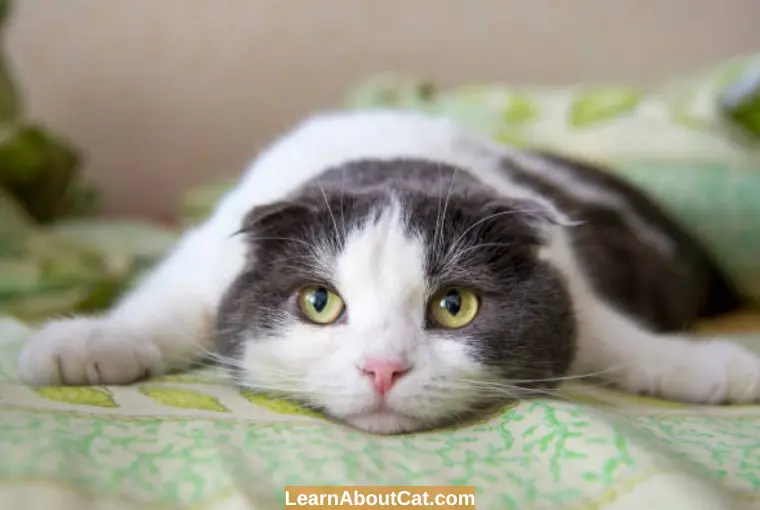
1. Feed them in Small Quantity
They’ll need all the energy they can manage to recover from whatever it is that’s giving them the stomach ache.
Your cat does not need to be starved – instead, offer her bland, small meals such as boiled chicken or white fish with no skin or bones. A tinned food specifically made for upset stomachs is also available from your veterinarian for your convenience.
Ensure that your cat doesn’t eat anything rich or fatty. Contact your veterinarian if your cat refuses to eat. Avoid feeding him rich, fatty, or sugary foods.
2. Provide Lots of Fresh Water
If your cat is pooping more frequently than usual, you have to give them plenty of water to replace the water lost. To prevent dehydration, the worst and most serious effect of diarrhoea, encourage your cat to drink more water.
Purchasing a cat water fountain might, if required, offer some additional motivation. Most cats enjoy the sound of rushing water.
Therefore they are more likely to choose a fountain as their water source. Another option is adding chicken broth, or tuna can juice to flavour their drink. Wet food, which includes more water than kibble, can also be given to cats.
3. Let them Rest
Because it has extra time when sleeping, the body heals itself by strengthening its immune system. If you observe them asleep, try not to disturb them. Till their stools return to normal, try not to force them to play.
But pay attention to how dozy your cat appears. Even though their body might need a little extra rest to recover, increased sluggishness should signify a more severe illness.
It does indeed indicate liver and renal disease, the two most hazardous medical conditions on this list. If uncertain, get advice and help from your veterinarian.
4. Protect Against Parasites & Worms
By waging war on parasites unrelentingly, you can make your cat happier. If your cat is free of itchy flea bites and the worms they cause, your pet will have a better quality of life.
5. Talk to the Vet
Even if your cat has diarrhoea but otherwise appears healthy, you still need to take immediate action. Giving your cat a comprehensive yet simple treatment may speed up the cure of this sensitive condition, assisting your cat’s diarrhoea.
Sometimes, It could be difficult to identify the actual cause of cat diarrhoea without further testing, such as examination of faeces or blood counts.
Is it Normal for a Cat to Have Diarrhea?
Having diarrhoea in cats is not normal, but if your cat is exhibiting similar symptoms but seems to be doing well, it might be a temporary problem.
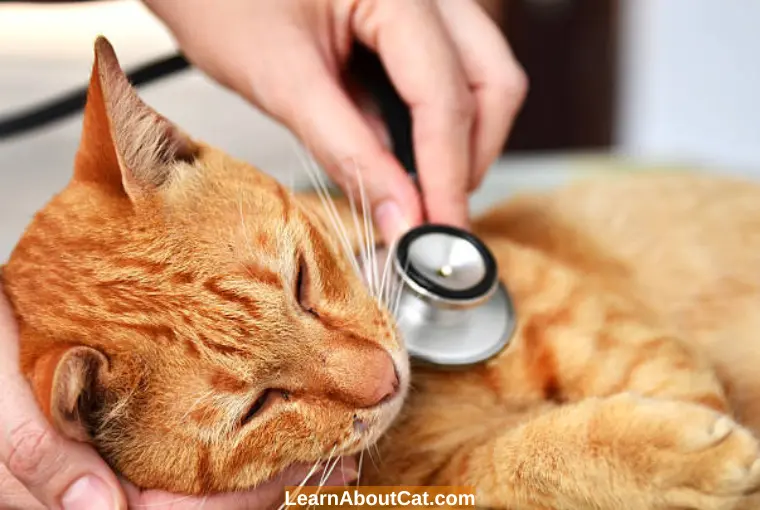
It is important to take cat diarrhoea seriously since a range of gastroenteritis problems, such as food allergies or bacterial infections, can cause it. Your cat’s underlying cause of diarrhoea is likely benign if it seems fine but has diarrhoea.
How Do I Know If My Cat has Diarrhea?
Naturally, finding out that your cat has diarrhoea is unpleasant, and your initial reaction in this situation is to take them to the doctor.
Depending on the reason and whether the small or large intestines are impacted, the symptoms of diarrhoea may vary.
Cats with mild intestinal diarrhoea often have 2 to 3 clear defecations without mucus or blood. The frequency shouldn’t be used more than five times! Cats with recurrent diarrhoea may lose weight as a result of their body’s inability to absorb nutrition.
With large intestine diarrhoea, the volume may decrease. Faeces that are bloody and mucus-filled are rather common. The average frequency can be five times higher.
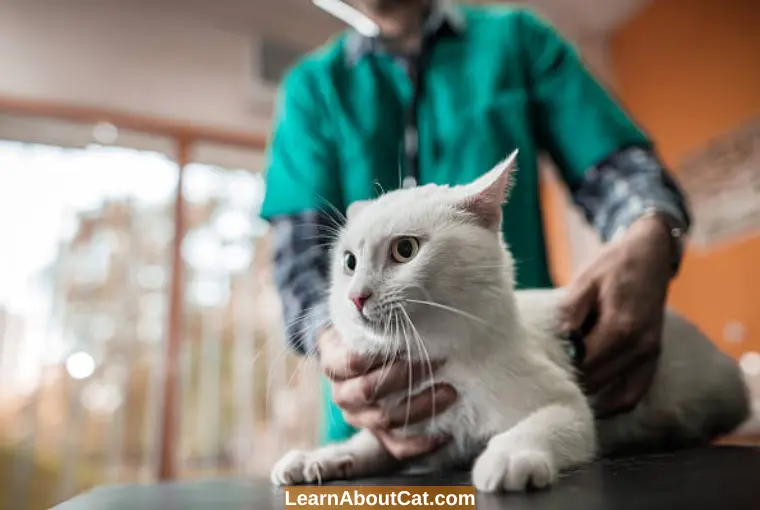
Symptoms of Diarrhea in Cats
- Mucus, greasy, or crimson faeces
- Loss of appetite
- Flatulence
- Dehydration
- Gurgling stomach noises
- Loss of weight and anorexia
- Fartning more frequently
- Apathy
- Chronic suffering
- Increased urination and thirst
- Urinating outdoors more frequently
When Should you be Concerned and Visit a Vet?
The diarrhoea that your cat experiences should disappear within a day, but if it doesn’t, it might be a sign of a serious underlying problem that needs medical attention.
It is possible that something more severe occurs if your cat is experiencing pain, discomfort, diarrhoea, and other symptoms. You should always consult your veterinarian if you are unsure. Regardless of how minor the cause may appear, seeking professional help is always beneficial.
What Foods Can I Feed My Diarrheal Cat?
When your cat has diarrhoea, one of the most crucial questions to ask is what to feed them. First and foremost, pick high-fibre meals, and give your partner smaller, easier-to-digest meals more often than usual.
If your cat or kitten behaves normally despite having diarrhoea, you must choose the right diet as part of your home treatment plan. Giving your cat a bland diet is the best line of action. Turkey, chicken, and pumpkin may be included in the diet for cats experiencing diarrhoea. Examine the two diets now.
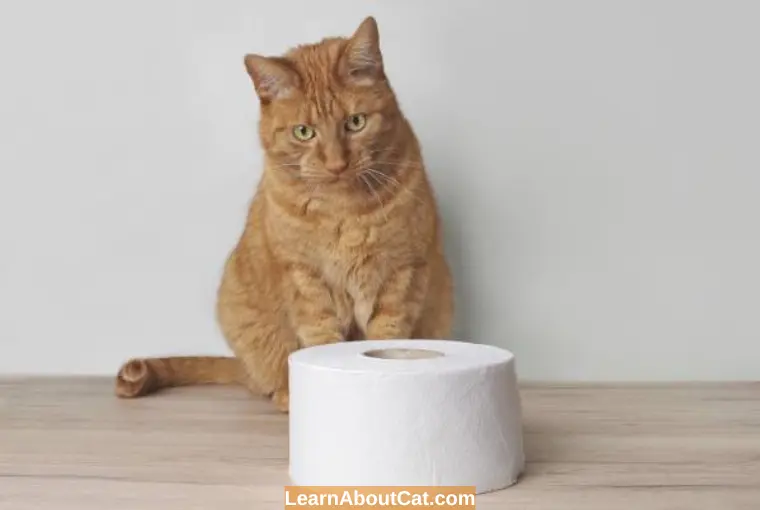
1. Turkey and Pumpkin-Based Diet
You might also try the second diet because it functions as well. Cooked meals, including ground turkey and pumpkin, are considered to be the most easily digested choices for cats with diarrhoea.
Pumpkin soothes the digestive tract as it has a lot of fibre. Pumpkin also has the effect of boosting peristalsis rather than decreasing it.
2. Rice and Chicken Diet
Your cat’s body receives the necessary proteins from well-boiled chicken that has been stripped of its skin, fat, and bones. You can also give your cat cooked rice with a tasty diet of chicken.
Boiling the rice offers your cat energy, helps the digestive tract absorb more water, and improves the consistency of its faeces.
Frequently Asked Questions
Can cats have diarrhea for no reason?
It’s not normal for healthy adult cats to have diarrhoea for no apparent reason.
There can be a variety of causes behind diarrhoea, some benign, some severe, and some even life-threatening.
Does cat diarrhea go on its own?
Yes. You can expect diarrhoea to resolve on its own very quickly, particularly if your cat is experiencing diarrhoea but seems to be otherwise healthy.
Diarrhoea in cats that lasts longer than a few days or show more severe signs (such as vomiting, bloody stools, losing appetite, or watery stools) require immediate veterinary attention.
How long does diarrhea last in cats?
The duration of cat diarrhoea varies depending on the underlying cause. It can range from a few hours to several days or even weeks.
A cat’s stool that is discoloured or exhibits symptoms that last longer than 1 to 2 days should be taken to a veterinarian. These symptoms may indicate a life-threatening underlying condition.
What should I do if my cat has diarrhoea but no other symptoms?
If your cat’s diarrhoea lasts longer than a day or two, consult your veterinarian to identify the cause. Call your veterinarian right once if the diarrhoea is black or crimson and comes with a fever, vomiting, weakness, or loss of appetite.
Is it concerning that my cat is vomiting and diarrhoea but otherwise acting normally?
Contact your veterinarian if the vomiting and diarrhoea do not significantly improve within 24-48 hours of treatment. Gastroenteritis frequently affects cats. Early diagnosis and treatment are essential to returning your cat to her natural, healthy state as quickly as possible.
Final Thoughts!
Should you be concerned if your cat has diarrhoea but otherwise looks normal? Depending on the circumstances! However, if your cat exhibits no other symptoms, there often isn’t anything to worry about. In this case, it is best to care for your cat at home by giving them access to plenty of fresh water to drink, small, regular meals of plain, boiled chicken to eat, and lots of leisure.
However, chronic diarrhoea can be a sign of something more serious. You should consult your veterinarian if it persists continuously for more than 24 hours, sporadically for more than 2 weeks, or when combined with any other symptoms.
Related Posts:
Who is Isabella?
My name is Isabella, and I am a dedicated and knowledgeable cat enthusiast. With years of experience caring for cats and a deep love for felines, I made a mission to help other cat lovers navigate the challenges of cat ownership.

